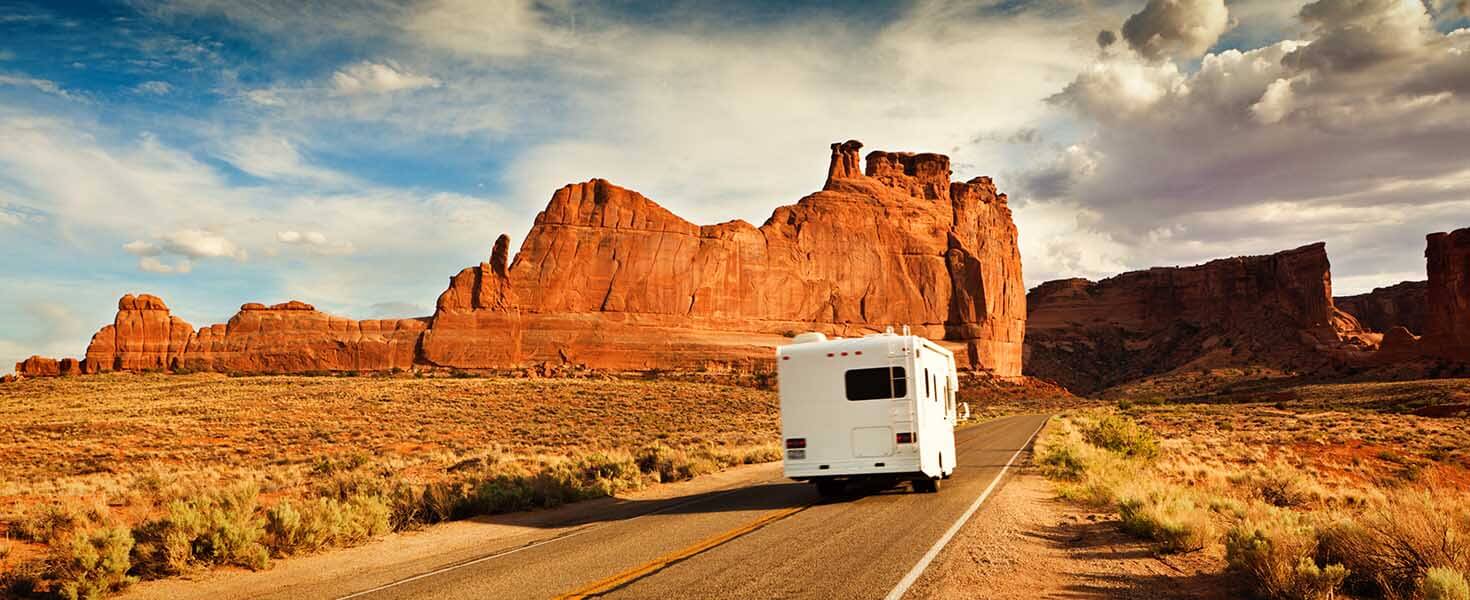

As more Americans are looking to reconnect with their families and explore the nation, many are leaning into recreational vehicle (RV) travel. And why not? It’s a “private home” on wheels, as most come equipped with a bathroom, bedroom, and kitchen all on board, providing travelers with all of the comforts of home.
In fact, RVshare, the world’s largest peer-to-peer RV rental marketplace, has reported a significant spike in its rentals. Sometimes referred to as the “Airbnb of RV rentals,” RVshare experienced triple its summer business in 2020 compared to the year prior. Plus, almost 80 percent of those rentals were made by those brand-new to the RV world.
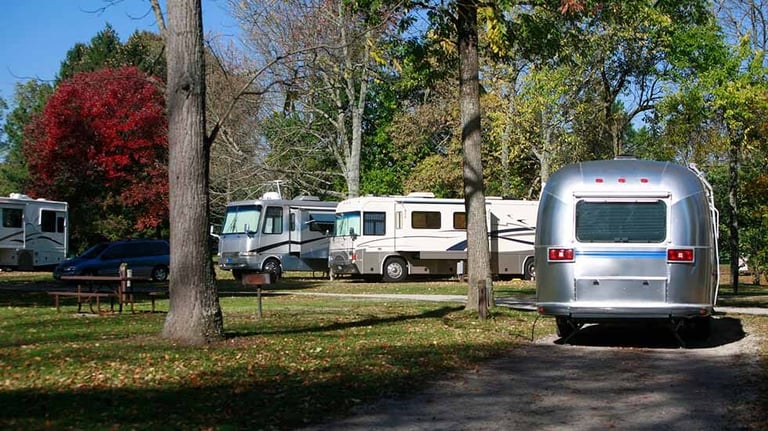
Where can I find an RV to rent?
You can either rent through an RV rental agency such as Cruise America or El Monte RV, or an RV rental share such as RVshare. With an RV rental agency, you’re renting from an established chain that offers set choices and the sort of standardized protocols you’d find at a chain hotel. With an RV rental share, you’re renting from another person. “A peer-to-peer RV rental platform gives you choice,” says RVshare CEO Jon Gray. “You can find anything from a teardrop travel trailer to a Class A motorhome at a variety of price points.”
What is the most popular type of RV for first-time renters?
First, it’s worth noting that there are three main types of motorhomes: Class C, A, and B.
The Class C motorhome is the most popular for first-time renters, according to Gray. This RV is similar in size to a van you’d rent for moving, ranging from 21 to 35 feet long, yet still comes with the standard RV bells and whistles.
Class A motorhomes are the large, bus-shaped rigs that resembles a rock star’s tour bus. They can be anywhere from 20 to 45 feet long and usually have more luxurious amenities—think outdoor entertainment set-up and onboard laundry. Some of them sleep up to eight to ten people.
Class B motorhomes are more agile than the other options, at just 16 to 22 feet long, but they don’t have the same kind of spacious interior. The Class B option is great for longer road trips, off-roading, and small groups. They are usually outfitted with a small kitchen, bed, and toilet.
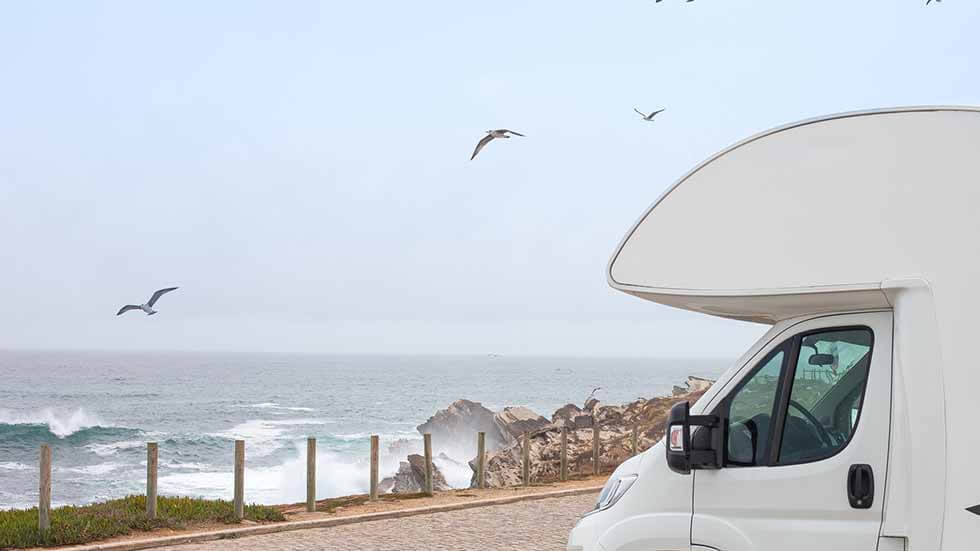
How Can I select the right type of RV for my trip?
First, consider the type of trip you will be taking. Will there be a lot of stops? How far are you traveling? For how long? Which amenities are a “must”? Which amenities would be a “bonus”? How many people will it need to sleep? What’s your budget? Thinking this through these questions will help clarify which RV to target.
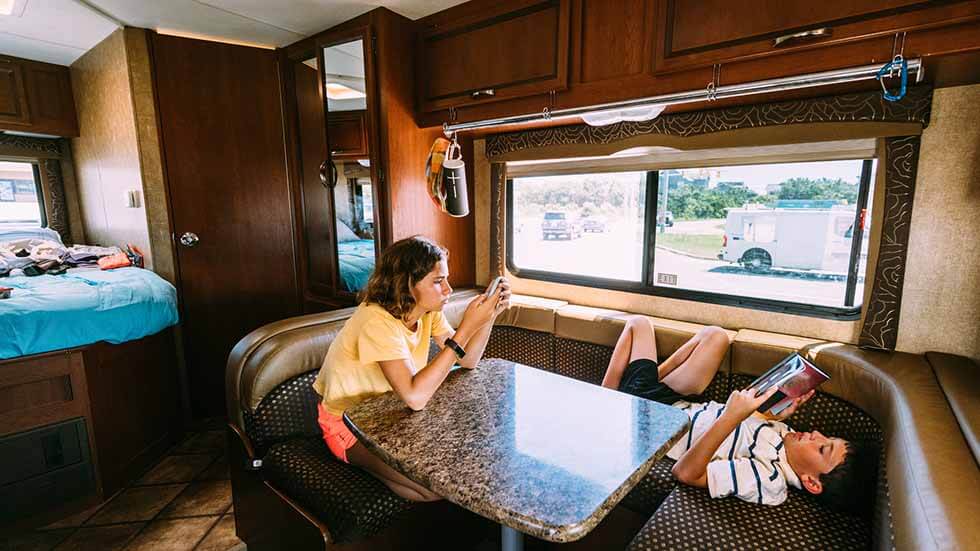
What's included in the RV rental?
Rentals include the base cost of using the vehicle each day, of course, but you’ll also need insurance for your trip. Depending on the company from which you rent, that might be bundled into the upfront cost—or it might not. (Gray says insurance is built-in and part of the upfront cost with RVshare.) Some amenities, such as linens, kitchen utensils, generator, and propane, also come with an extra cost. Mileage, cleaning, roadside assistance, and delivery fees may prove additional too. (AAA members do get varying degrees of roadside assistance for their RV rentals, depending on the membership level.) In short: Definitely ask what’s included—and NOT included—before signing on the dotted line to prevent any surprises.
How much does it cost, on average, to rent an RV?
The average renter spends about $150 to $200 per night on an RV rental, which includes fees and insurance, according to Gray. However, your budget should also factor in extra fees that will come down the road—literally. These include park and campground fees, gas for the trip, spontaneous excursions, meals, and activities.
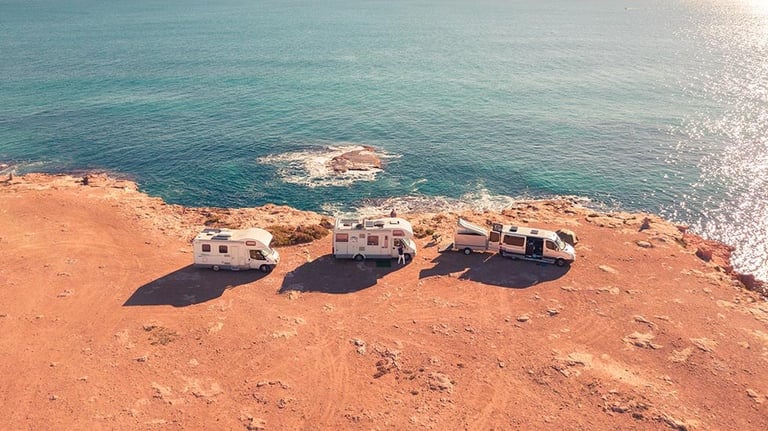
Do I need a special license to drive an RV?
Good news, most states don’t require a special driver’s license to operate an RV, so long as your use is personal and not commercial. However, you should always check with your rental provider and your home state’s requirements on the latest. It’s worth noting that states have reciprocal agreements on driver’s licenses, so if you have the proper license in your home state, you should be ok with driving an RV across the country.
What are some rookie mistakes and other considerations to make in advance of an RV trip?
Gray recommends getting comfortable with driving and parking the RV before renting one.He says RVs are easier to maneuver after a little practice with wide turns and adjusting to the blind spots. The owner or rental agency representative should be able to help you with a test drive.“They'll want you to feel at ease before driving off,” Gray says.
When you meet with the RV owner or rental agency representative, also make sure to get a detailed walk-through of the RV, including how to hook up to electricity and water and operate the generator.
If you’re a first-time renter, make it easy on yourself: Stay at a fully loaded RV park or campground that has full hookups, a dump station, and staff onsite.
Have a clear route to your destination. Know where you’ll be stopping overnight and make those reservations in advance—otherwise you risk the RV park being full when you arrive.
Finally, “You should always have fun along the way,” says Gray. “After all, that’s what a road trip is all about!”
